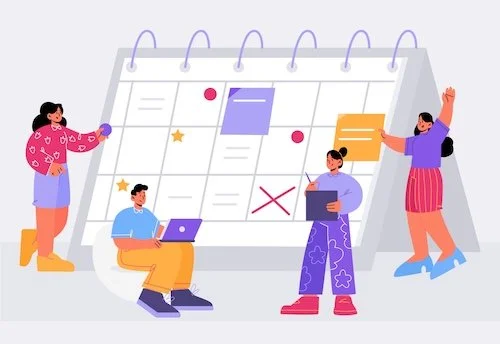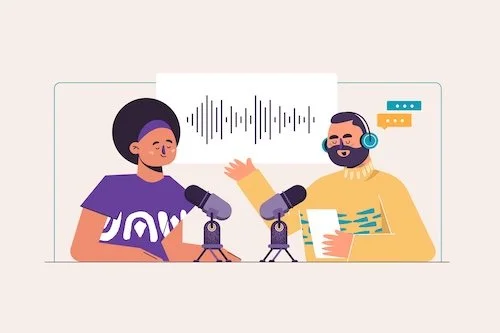Eager to be out on stage more? Having a few strong speaking samples on hand to showcase your style and expertise is a must-have. But what are the key things that event organizers look for when evaluating whether they want to add a speaker to their stage? How can your speaking sample stand out from the crowd and showcase yourself as a dynamic thought leader? Let’s look at some guidelines for helping you pick strong speaking samples.
First, take a look at what you have.
To kick things off, consider your speaking experience to date. For novice speakers, there may not be many samples to choose from, and you may need to seek out alternative solutions. For seasoned speakers, selecting the strongest option out of a long list can also be challenging.
The best speaking samples are those that show you speaking solo, on-stage, and interacting with the audience in person. If you don’t have this kind of sample available, consider using a virtual session or broadcast/media interview as a temporary solution. If you’re totally new to the game, consider self-recording a brief video of yourself talking about a relevant topic and sharing key takeaways.
Speaking samples should be updated frequently, so be sure to refresh your go-to list as you build your experience on stage, your target audiences shift, and your priority topics change.
Whether you’re a new or seasoned speaker, let’s look at the key components of strong speaking samples.
1. Be engaging.
It is easy to tell when someone is simply reading from a script or slide notes, so don’t pick a sample where you appear to be reading or look awkward and stiff. Rather, pick a sample where you are personable, relaxed, and going with the flow.
Make sure the video showcases you as an interesting speaker that keeps the audience listening. If you’re speaking to an empty room, that can send the wrong message. Or if you’re speaking to an audience that is noticeably texting or chit-chatting among themselves, that sample might also not be a good pick.
2. Be passionate and relevant.
Pick a topic that you care about. The energy and enthusiasm will translate well onto video and make you seem that much more appealing as a speaker.
Select a sample that shows off your expertise in one or multiple areas and presents unique perspectives based on your experiences and real-world examples.
Understand what type of audience you would be talking to and select your sample accordingly. Sharing a video of you presenting a great but niche healthcare topic, and the would-be event is attended by C-levels in the fintech space, that is not the right sample.
Be careful about sending videos that are very self-promotional and vendor-specific. While this may make sense when you’re raising funding and speaking to investors, these samples don’t help position you as a true thought leader.
3. Keep it concise and make sure you are the star.
Event organizers are reviewing hundreds (if not thousands!) of speaking submissions, so they don't have time to watch an in-depth 30-minute video. A short video that shows you covering interesting topics and clear takeaways in limited time is a better choice.
Be aware of selecting panels as your speaking samples. It is easy to get lost and event organizers are not going to watch a whole video just to find your relevant parts.
If your samples are limited to panels, consider adding timestamps to your hyperlinks to help guide organizers in the right direction.
Bonus: you can also use timestamps to skip past awkward sections—like when your slides weren’t working at the beginning of your presentation.
In reality, the strongest samples tick a variety of boxes that will vary based on your experience level and more. Make sure your samples present you as an engaging thought leader, and demonstrate that you would appeal to the intended audience. Remember, having a bad speaking sample is almost always worse than having no speaking samples.
Lastly, keep in mind that some events may have specific requirements around who they accept. For example, some events only host speakers with a certain level of experience. But don’t worry—there are many conferences who prioritize inclusivity and welcome speakers of all levels to participate.
Still unsure what types of videos make strong speaking samples? Check out some examples from the below speakers on stage:
Jake Wood, Founder and CEO, Groundswell @ Groundbreak
Manik Suri, Founder and CEO, Therma @ Techonomy




